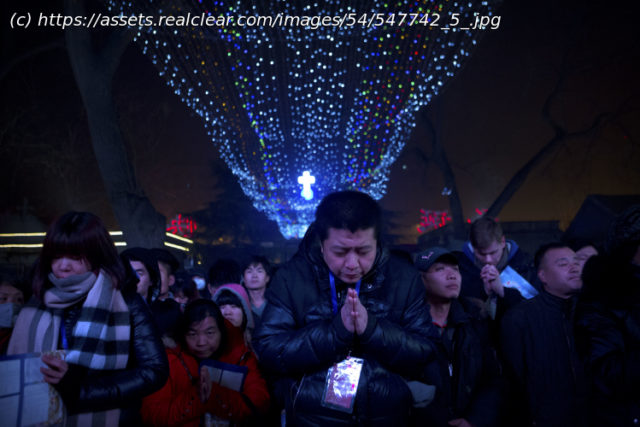In mainland China and Hong Kong, Easter was a private affair again this year for the tens of millions of Christians who would normally attend …
In mainland China and Hong Kong, Easter was a private affair again this year for the tens of millions of Christians who would normally attend church services. All churches, temples, and mosques in mainland China have been locked down since COVID began more than two years ago, meaning that Christians and other believers haven’t been able to gather to celebrate religious holidays since 2019. Hong Kong authorities also re-imposed pandemic lockdowns from early January until this week amid China’s worst COVID outbreak in two years. Many of Hong Kong’s Christian churches offered online Easter services that parishioners and other believers could watch virtually. Still, the future of those alternatives is now in doubt as Beijing continues to tighten its grip over the once semi-autonomous city. Under President Xi Jinping, all religions have faced persecution. So far, international condemnation has mainly focused on the more than 1 million Uyghur Muslims forced into labor camps, which Beijing cynically calls “vocational training centers” in the country’s western region. But Chinese Christians also have faced varied forms of suppression during Xi’s time in power. Catholic churches refusing to comply with state mandates have been torn down or had their crosses removed, while images of Christ have been replaced with posters of Xi. The Chinese government controls religious organizations by forcing them to register and submit to the leadership of approved “patriotic religious entities” that follow national guidelines, including teaching that loyalty to the country and communism are integral to their faiths. Those who refuse must operate underground, subject to government punishment. For several years, the Christian church in Hong Kong was largely spared. But recent actions taken against Hong Kong’s Christian churches are chipping away at the religious freedom the city has enjoyed since the British established it as a colony in the early 1840s. Reverend L., a visitor to the U.S. from Hong Kong who requested anonymity to speak to RealClearPolitics, said the Chinese government for more than 20 years has been trying to infiltrate and curtail the independence of Hong Kong churches because of their integral place in the city’s society and influence over young minds. Roughly 60% of schools in Hong Kong are run by Christians – Catholics and Protestants – even though the government fully funds them, a vestige of the British colonial era. “It was great because Hong Kong citizens could avoid the high tuition fees [for high-quality education], but now it’s actually bad for the church because the CCP is taking advantage of that and tries to control the church by controlling Christian schools,” Rev. L. told RCP. “Once they control Christian schools, they could basically control the church pretty easily.” The CCP has already successfully compromised some of the principals and administrators of these schools by “wining and dining” them, the pastor said, and persuading church members to join the CCP. Meanwhile, the party is indoctrinating young priests in the Philippines and sending them to Hong Kong to replace aging clergy. The Hong Kong government is also starting to take steps to curtail Internet freedom. On the mainland, a new law, imposed March 1, makes it illegal to share religious content online without government permission. While Hong Kong authorities haven’t gone that far, its leaders did shut down a handful of websites across the territory devoted to the 2019 citizen uprising against new laws ceding more of their autonomy to Beijing. Tom Farr, president of the Religious Freedom Institute, based in Washington, D.C., said Xi’s ultimate goal is “Sinicization,” which is the absorption of any autonomous Chinese entities – in this case, religious organizations – into the communist apparatus. “The reasons are not difficult to discern,” Farr tells RCP. “Despots throughout history, and certainly the totalitarians of the 20 th and 21 st centuries, have understood then, and understand today, that they will not retain power if substantial numbers of their citizens are faithful to an authority greater than the party and the state.






